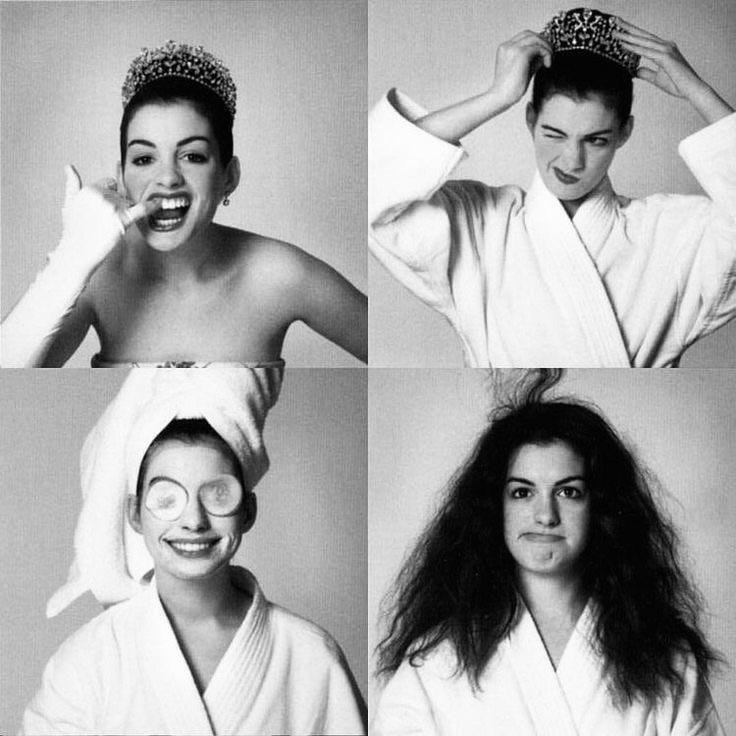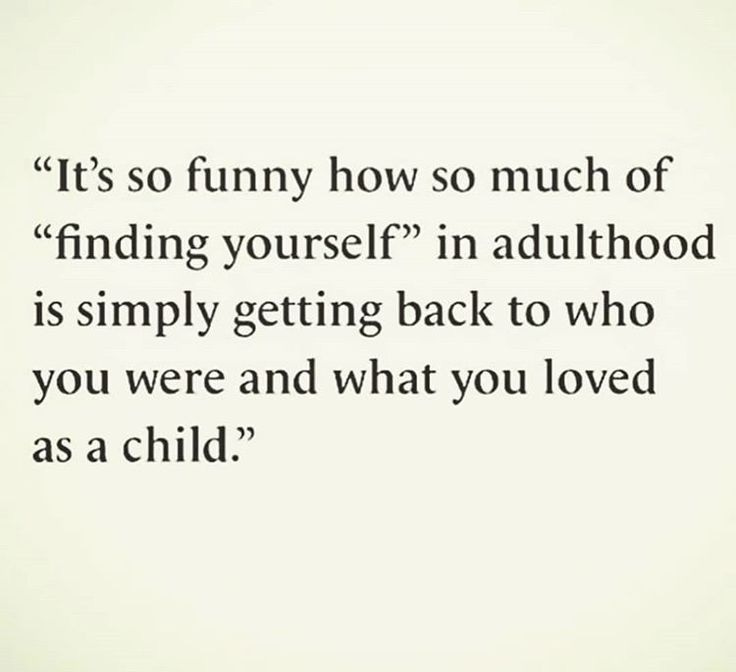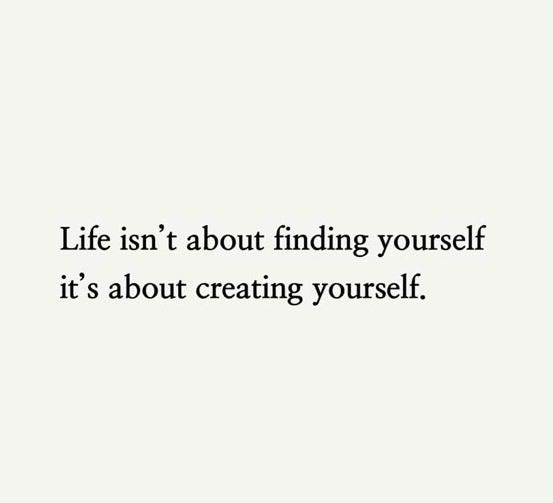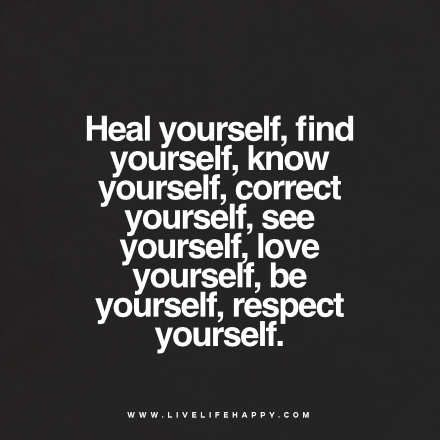If you have been even slightly familiar with the wellness culture, that is all over social media, you have encountered this trend to become the “best version of ourselves”. A term that has been overused in the last few years. But the trend is very simple, looking to be the most healthy, productive and happier version of yourself in all areas of our lives. Which includes having good mental health, being strongly connected with our goals and purpose, setting boundaries, hitting those 10k steps a day, etc…
Except that sometimes it all becomes too much, rather too contradictory in a sense (to discuss all that it would take more than one post). I would be presenting a series of posts discussing where to draw the line with the wellness culture promptly (so subscribe for notification). But for now let's just concentrate on the basis of it all: Reclaiming oneself again, feeling like yourself again, in essence.
We can all agree that we have those moments of dissociation when we don’t recognize ourselves in the mirror. It's like a different person is looking at us, and trust me that place is scary. Is depressing and disconnecting. But it is a common part of life, of being a human. The search for purpose and the question to understand the reason behind everything has founded everything in life. So, it’s not strange that it would be the same with this new set purpose to the human race.
But at its core there is a discrepancy, because are we finding ourselves or constructing new (better) versions?
Finding Yourself
Half of the internet is going to tell you that you are on this journey to find yourself. To ultimately reunite with the truest version of yourself, not the one that society shaped you to be. Or the one your environment when you were growing up with and all the trauma forced you to be.
With phrase like “How ironic it is that growing up is encountering you child version again” (not word for word but same main idea that I saw not long ago) we are encourage to the believe this whole journey is shaped to grow confidence and defend the things we genuinely like as kid, and continue to move through life with this passion in mind and action.
But here is where the discrepancy comes.
Constructing Yourself
What the other side is showing you is completely different, because how are you going to find the “freer version of yourself” with new habits and lifestyle. Aside from a logical point of view when we can clearly predict that you can’t completely go back in time and be a child again, as you mature and are confronted with new responsibilities and problems, this particular culture also forces you to become another version of yourself. This by setting new habits…Do exercise…Drink more water…Speak up more often…Eat this instead of that…Spend your doing this instead of that…etc
All of those habits that you're incorporating are creating a new version of yourself that is completely different from the one that you are trying to find, because they carry new experiences and you inevitably are going to grow. You are going to know how to perform something better, you are going to determine if you like something or not, you are going to understand things you didn’t , your whole perception is going to change (and I’m talking based on experience).
You are constructing a better version of yourself, not finding or going back to an old version, if you are doing something merely different and more healthier.
What side to lean in?
I read “The Subtle Art of Not Giving a Fuck” with the hope of learning how to not give a fuck about things I shouldn’t and were draining my energy (spoiler alert I didn’t learn anything about the matter) but I did learn other life lessons that the author share. One that has stuck around is the insight on how to be more happier in life you have to move on from the past, instead of always going to the past and its tragedy (as an ex member of “The Beatles” did after being fired just before the success of the band, instead of continually thinking of the “what if”).
However, I also encountered myself with a wholesome article that argued how all this thing to construct yourself is based on evasion and in the long run is extremely detrimental as you aren’t developing and don’t have self-acceptance. The base for real confidence, self-esteem and truth growth. At first I was super reluctant to continue reading as I thought it would ultimately convince me to leave all my efforts of self-improvement behind and fall for the self-acceptance trend.
Curiously enough the other person I was also introduce to the self-acceptance thing was the writer of the Subtle Art of Not Giving a Fuck (you see how the dilemma is following me).
And just at midnight the logic came.
Because looking closer I understood what it all meant. Mark and the article reference self acceptance as the unconditional regard often taught on the humanistic approach of psychology and psychological treatment through therapy. Self-acceptance means you accept your own bad behaviors, you accept all the mistakes and even the lack of qualities in your persona that others seem to possess so easily. And only when you accept yourself you are able to work with yourself because you know yourself more. For example, Mark said that he accepted that he couldn’t control himself surrounded with certain food, he purposefully did not surround himself with it. He was able to work better with himself instead of just blaming himself over and over again for not having self-discipline. Which would lead to low self-esteem, which naturally would lead to rumination and even more regress on the journey of self-improvement and happiness. See?
The more gently you treat yourself, the more you know how to work with the unconscious part of yourself, the easier it becomes. he easier it becomes the more tangible it becomes. The more tangible the more confidence you develop. The more confidence, much happier you feel and the so called circle continues. Is human psychology.
So, you have to find yourself, accept the things of yourself that have stuck with you from moment one, and understand the unconscious behaviors that you lack control of. Integrating the passions, healing the wounds and teaching your young kid the things you wish your parents have taught you, in order to construct the best version of yourself.
The best version of yourself
Being the best version of yourself has nothing to do with a version of yourself that does something or doesn’t do something (the framing is creating all the confusion) is a commitment of showing up to life to live for you. For your goals, promises, and passions. Is being so in tune with yourself that every decision you make is along with the desire to seek the most fulfillment, meaning having the most happiness, satisfaction and purpose with your life experience. Everyday showing up to satisfy your goals, promises, and passions with a growth mindset.
Don’t seek goals or habits that are not aligned with what you truly want as you would be building someone else’s best version of themselves. Also you don’t have to pursue the passions you once had if it no longer brings you fulfillment (which does not mean quitting because of hardship. Motivation is a feeling that swings). You don’t have to confront the meaning behind all your mannerism, but indeed pursue you. At the core of “best version of yourself” is the question that would set all the basis for it. “Who do you want to become to feel the best? To feel you have lived life in the best way ever?”
This trend commits the mistake of not informing people is all in the personalization. Yes, there are certain things that would work to every human such as 8 hours of sleep because they are basics, but we are complex, we are all different and one-of-a-kind so some goals won't work for some that would work for others. If you want to become the best version of yourself, personalize the journey.
Don’t forget to subscribe if you want more of this content (the series is coming soon!)
Like if you like it and comment if you didn’t (you can also comment if you like it),
With dry kisses,
M. E.





